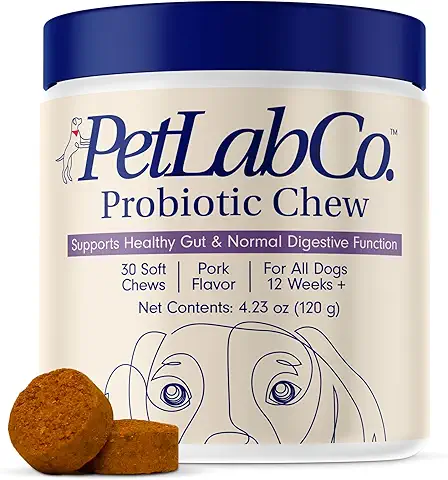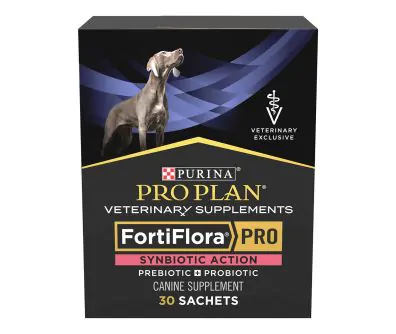Tummy Talk: Keeping Your Vietnamese Phu Quoc Ridgeback’s Digestive Health in Check
- Phu Quoc Ridgeback Kennel Club

- Apr 22, 2025
- 4 min read
Updated: Apr 27, 2025

The Vietnamese Phu Quoc Ridgeback is a resilient and agile breed known for its intelligence, loyalty, and distinctive ridged back. Like all dogs, their health is deeply influenced by their gut microbiome—the complex community of bacteria that aids digestion, immune function, and overall well-being.
Probiotics (beneficial live bacteria) and prebiotics (non-digestible fibers that feed these bacteria) play a crucial role in maintaining a healthy gut. For the Phu Quoc Ridgeback, incorporating these into their diet can improve digestion, boost immunity, reduce allergies, and even enhance skin and coat health.
Today, we will explore the science behind probiotics and prebiotics, their benefits for the Phu Quoc Ridgeback, and the best natural and supplemental sources to incorporate into their diet.
Understanding Probiotics and Prebiotics
1. What Are Probiotics?
Probiotics are live microorganisms that provide health benefits when consumed in adequate amounts. They help balance the gut microbiome by introducing beneficial bacteria, which can be especially important for dogs exposed to stress, antibiotics, or poor diets.
Common Probiotic Strains for Dogs:
- Lactobacillus acidophilus: Supports digestion and immune health.
- Bifidobacterium animalis: Helps with diarrhea and gut inflammation.
- Enterococcus faecium: Aids in nutrient absorption.

2. What Are Prebiotics?
Prebiotics are indigestible fibers that act as food for probiotics, helping them thrive in the gut. They are found in certain vegetables, fruits, and grains.
Common Prebiotic Sources:
- Inulin: from chicory root, Jerusalem artichoke
- Fructooligosaccharides (FOS): from bananas, asparagus
- Beta-glucans: from oats, mushrooms

Together, probiotics and prebiotics work synergistically in a process called synbiotics, enhancing gut health more effectively than either alone.

Benefits of Probiotics and Prebiotics for the Phu Quoc Ridgeback
1. Improved Digestion and Reduced Diarrhea
Phu Quoc Ridgebacks with sensitive stomachs may suffer from occasional diarrhea, especially when transitioning foods or exposed to environmental stressors. Probiotics help restore gut balance, while prebiotics promote healthy bacterial growth, leading to:
- Firmer stools
- Better nutrient absorption
- Reduced bloating and gas
2. Stronger Immune System
Approximately 70% of a dog’s immune system resides in the gut. A healthy microbiome helps:
- Fight harmful pathogens
- Reduce chronic inflammation
- Lower the risk of infections
3. Allergy and Skin Health Support
Seasonal allergies and skin irritations are common in Phu Quoc Ridgebacks. A balanced gut microbiome can:
- Reduce inflammatory responses to allergens
- Improve skin barrier function
- Decrease excessive scratching and hot spots

4. Mental Health and Behavior
Emerging research suggests a gut-brain axis connection, meaning a healthy gut can influence:
- Reduced anxiety (beneficial for high-energy breeds like the Phu Quoc Ridgeback)
- Better stress resilience
- Improved cognitive function in aging dogs
5. Weight Management
Obesity can be a concern for less active Phu Quoc Ridgebacks. Certain probiotics help regulate metabolism by:
- Enhancing fat breakdown
- Reducing inflammation linked to weight gain
- Promoting satiety
Best Probiotic and Prebiotic Sources for Phu Quoc Ridgebacks
1. Natural Food Sources
Probiotic-Rich Foods:
- Plain, unsweetened yogurt (with live cultures)
- Kefir (a fermented milk product, richer in probiotics than yogurt)
- Fermented vegetables: small amounts of sauerkraut or kimchi—ensure no onions or garlic

Prebiotic-Rich Foods:
- Pumpkin: high in fiber, great for digestion
- Sweet potatoes: cooked and mashed for easy digestion
- Bananas: in moderation, as they contain FOS
- Chicory root: often found in high-fiber dog treats
2. High-Quality Probiotic Supplements
When choosing a probiotic supplement for your Phu Quoc Ridgeback, look for:
- Multiple bacterial strains: e.g., Lactobacillus, Bifidobacterium
- CFU count of at least 1–5 billion per serving
- No artificial additives or fillers
Recommended Probiotic Supplements:
- Purina Pro Plan FortiFlora: vet-recommended, highly palatable
- Nom Nom Now Probiotic Support: human-grade, includes prebiotics
- PetLab Co. Probiotics for Dogs: soft chews with digestive enzymes
3. Prebiotic Supplements
If your dog’s diet lacks fiber, consider:
- Psyllium husk powder (mixed into food)
- Inulin powder (derived from chicory root)
- Pumpkin powder (a natural, gentle prebiotic)
How to Introduce Probiotics and Prebiotics Safely
1. Start Slowly – Introduce small amounts to avoid digestive upset.
2. Monitor Stool Quality – Adjust dosage if diarrhea or constipation occurs.
3. Pair with a Balanced Diet – Probiotics work best with high-quality protein and fiber.
4. Consult a Veterinarian – Especially if your dog has chronic health issues.
Here’s a clear and informative table outlining the key differences between prebiotics and probiotics—tailored specifically for the Vietnamese Phu Quoc Ridgeback dog:
Feature | Prebiotics | Probiotics |
Definition | Non-digestible fibers that serve as food for beneficial gut bacteria | Live beneficial bacteria that help maintain a healthy balance in the gut |
Function | Stimulate the growth and activity of good bacteria already in the gut | Introduce live microorganisms directly into the digestive tract |
Common Sources | Chicory root, inulin, bananas, oats, garlic, asparagus | Lactobacillus, Bifidobacterium, Enterococcus strains in supplements |
Form for Dogs | Found in certain high-fiber dog foods, supplements, or added to meals | Available as powders, capsules, chews, or included in probiotic dog foods |
Role in Gut Health | Supports long-term growth and maintenance of a healthy microbiome | Helps restore gut balance during or after illness, stress, or antibiotic use |
Benefit for PQ Ridgebacks | Supports natural digestion and helps with sensitive stomachs | Boosts immunity, helps with diarrhea, improves skin and coat health |
Ideal Use Case | Daily maintenance of gut health, especially useful for dogs on a stable diet | Short-term use during dietary changes, illness, or post-antibiotic recovery |
Special Note for PQ Dogs | Good for the breed’s often sensitive digestive system and to prevent bloating | Helps balance gut flora during high-stress events like travel or training |
Final Thoughts
For the Vietnamese Phu Quoc Ridgeback, maintaining a healthy gut microbiome with probiotics and prebiotics can lead to better digestion, stronger immunity, healthier skin, and even improved behavior. Whether through natural foods or high-quality supplements, incorporating these gut-friendly nutrients can significantly enhance your dog’s quality of life.
By prioritizing gut health, you ensure your Phu Quoc Ridgeback remains active, happy, and resilient—ready to take on every adventure with vitality.
---
**Disclaimer: This article is for educational purposes and is not a substitute for professional veterinary advice. Always consult your vet before making dietary changes.










Comments